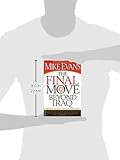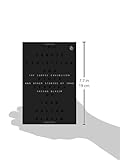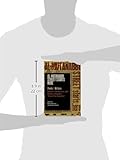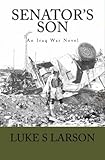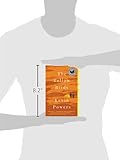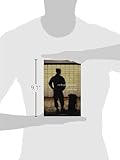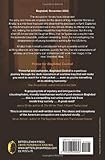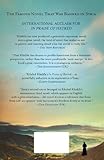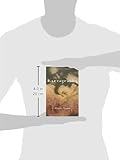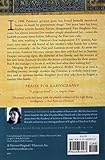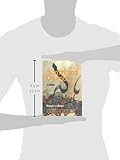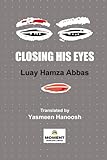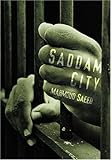Just weeks after the US invaded Iraq in March of 2003, narratives about the conflict began to flood into publishing houses. Although there was already a waterfall of commentary from US news sources, government PR campaigns, US-based bloggers, and TV talking heads, the urge to compile a larger narrative—to cement memory into an object that would persist through time—was widespread. Books promised to answer questions instead of giving an endless stream of facts. Although there was no stopping point on the horizon, they promised to tell a “whole” story: beginning, middle, and end.
Two years after the invasion, in 2005, USA Today reported that more than 300 books had been published in English about the war and ongoing occupation.
Eleven years after the invasion, hundreds more English-language books have been churned out. They’ve been written largely by soldiers, journalists, photographers, commentators, and a variety of historians. Barnes and Noble’s online “Iraq War, 2003” category comprises more than 2,000 books, and there are yet more on Amazon and elsewhere.
This explosion of texts reflects not just a need to read Iraq, but a need to write it. A number of these books have been commercially successful, but beyond the most popular—American Sniper, The Final Move Beyond Iraq, War Stories—there are dozens of others, among them dozens of self-published stories.
Surely money must have driven some of this production. But this mass outpouring of stories reveals more than just a marketing niche—it shows a raw need to narrate, to impose an arc on violent events. Many of these authors felt they had an “inside story” to share. Others felt they had political or historical insight. Many others had none of these. Yet they must have felt the need to inscribe their vision onto the terrifying rawness of Occupation.
We humans often use storytelling in order to “take back” something we believe has been stolen from us. Margaret Atwood explored this need from a different angle in her short story “Rape Fantasies.” Here, women who fear stranger-rape build stories in which they overpower the men who want to hurt them.
The idea of women “taking back the night” is fraught with its own racial politics (taking back the night from whom, exactly?), but we can see many of these Iraq War texts in a similar light: We begin with a threatening “Other.” From here, we explain, put boundaries around the subject, and overpower the apparent threat. We “write” the reality of Iraq, thus changing it, making it submit to us—if only in our imaginations.
Other ways of seeing the story
There are certainly many other ways of telling the stories of “Iraq War, 2003.”
As a keen watcher of Arabic literature in translation, I find that translation patterns often echo the news. Very simply, news about Syria = more Syrian literature in translation. As translator Richard Jacquemond said in a recent interview, “There have been as many translations from Syrian authors into French since the beginning of the 2011 uprising as during the five of six decades before.” Something similar can be said for English.
In the past eleven years, Iraqi authors have written countless stories, poems, and books about their nation’s response to Occupation and civil conflict. Yet there has not been a simultaneous blossoming of Iraqi literature in English translation. Every year, I wait for it. Every year, I am surprised to find so little.
Certainly, there are works that have been translated, notably Hassan Blasim’s short stories, which finally arrived in a US collection in January 2014, translated by Jonathan Wright. Some works by Blasim, Muhsin al-Ramli, Luay Hamza Abbas, Ahmed Saadawi, Mahmoud Saeed, and Sinan Antoon have been translated. But, in general, Iraqi-authored narratives are a remarkable absence, an unseen giant.
In a recent presentation in Amman, Jordan, Cambridge professor Yasir Suleiman talked about the large number of books by Iraqis that depict post-2003 Iraq. However, he said, “these books tend not to get translated, and, when they are translated, they do not get the same exposure as novels written by Americans about post-American-invasion Iraq.” Suleiman argued that, “By doing that, they [English-language writers] are validating the self of their own literature.”
Instead of opening up space for questions, Suleiman argues that American authors are re-painting the face on their national self-image over Iraq.
Another absence
But authors from the US should want to write about Iraq, should they not? The Occupation opens many important questions: about torture, imprisonment, imperialism, money, the meaning of “terrorism,” among others. Some writing projects, like Al-Mutanabbi Street Starts Here, have aimed to keep Iraq at the center of the American consciousness. But it has mostly been poets who have done this work—fiction writers have been largely absent.
It’s true that poetry—by virtue of its marginalization—gains a freedom from market forces that fiction writers don’t always feel. And some fictions, like some poetry, will take their time. Work about the Lebanese civil war, or about the US-Vietnam War, have followed these conflicts by several decades. But as Pakistani novelist Kamila Shamsie notes in a 2012 Guernica essay, after al-Qaeda’s attacks on the US in September 2001, many major novelists and poets rushed into this moment and explored it in creative writing. Although it has been little more than a decade, there is a thriving genre of “9/11” fiction.
The 2003 invasion and occupation of Iraq, meanwhile, has remained comparatively un-explored. In the world of serious fiction, the “War on Terror” has remained a largely silent space. It leads Shamsie to ask why, "Your soldiers will come to our lands, but your novelists won’t.”
Certainly, there have been novels set in and around Iraq: Luke Larson’s Senator’s Son (2010), Kevin Powers’ The Yellow Birds (2012), Phil Klay’s Redeployment (2014), Elliott Colla’s Baghdad Central (2014). But most established US novelists have remained far from the conflict. Colla’s is perhaps the first in this small group to have a fully realized Iraqi protagonist.
Why aren’t there more stories that inscribe the questions of Occupation or the US’s global “War on Terror”? Some writers might be genuinely afraid of overstepping themselves. Reading many of the narratives about cardboard cut-out Muslim “terrorists” could spawn a genuine fear of writing something dreadful. Still, as Shamsie notes, there is nothing particularly alien about Muslim characters, no reason why they cannot be created by agnostic writers from the US. Syrian novelist Khaled Khalifa has a perfectly believable American CIA agent in his In Praise of Hatred. With a little work, Americans should be able to do the same.
Moreover, Colla, in an essay about his novel Baghdad Central, writes about how American and Iraqi stories are intertwined. He explores the story behind his protagonist’s namesake, noting it "is as American as it is Iraqi." There are a thousand and one threads that entangle us: Americans and Iraqis. Many Iraqi novelists are crossing into this territory, but few North Americans.
Shamsie ultimately puts it down to lack of interest: “Even now, you just don’t care very much about us.” Perhaps that’s true. Although perhaps, for US novelists to feel the connections, more translated novels and stories must open up this space. More works must show these questions from another angle.


